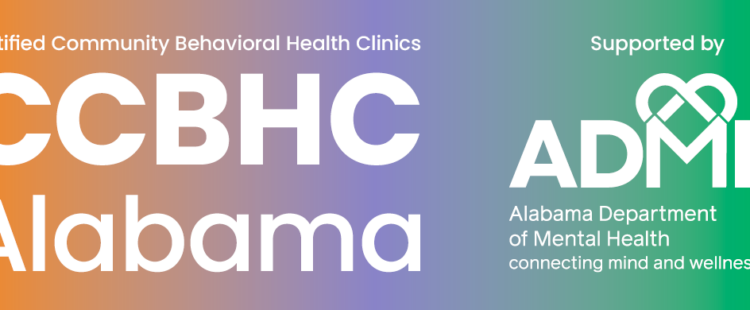Alabama Selected for Certified Community Behavioral Health Clinic
Medicaid Demonstration Program
Enhancing Access and Expanding Services
Montgomery, Ala.– Alabama is one of ten states selected for the Certified Community Behavioral Health Clinic (CCBHC) Medicaid Demonstration Program by the U.S. Department of Health and Human Services (HHS) in partnership with the Substance Abuse and Mental Health Services Administration (SAMHSA). Thanks to this opportunity, Alabama’s behavioral healthcare system will begin its transition to the CCBHC business model.
“Our department has set a bold vision. One day, every Alabamian in all counties will have access to 24/7 mental health and substance use treatment and live a full life in the community,” said Alabama Department of Mental Health Commissioner Kimberly Boswell, “Receiving this grant and the opportunity to expand our work on the CCBHC Model is a major step toward this vision.”
The Alabama Department of Mental Health (ADMH) and community mental health providers’ participation exhibits a continuous commitment to improving and expanding a robust system of behavioral health care across the state. The program approval follows development of state-level infrastructure led by the Department and collaboration with providers to meet CCBHC standards.
The CCBHC Medicaid Demonstration Program will enable states to prepare community mental health centers to expand to the CCBHC model. The Program provides the awarded states with sustainable funding to increase access to mental health and substance use treatment through Certified Behavioral Health Clinics (CCBHCs).
Nationally, Certified Community Behavioral Health Clinics (CCBHCs) are providing an estimated three million people with mental health and substance use treatment and care, with 79% of clinics serving more people after becoming a CCBHC, according to the 2024 CCBHC Impact Report. States that have successfully implemented the CCBHC Model are seeing improvements in 24/7 access to quality care, workforce capacity, and improved patient outcomes.
CCBHCs offer a comprehensive range of mental health and substance use disorder services, ensuring accessibility for all individuals seeking care, regardless of their ability to pay or place of residence. CCBHCs integrate mental health and substance use treatment with physical health care, adhere to rigorous quality and accountability standards, and work to remove barriers to treatment. Benefits also include but not limited to reducing homelessness and decreasing diversion to hospitalization. The model also increases the availability of crisis intervention services. This initiative builds on the ADMH Alabama Crisis System of Care, which includes crisis services throughout the state.
For more information about CCBHCs in Alabama, contact Shalandra Rogers, CCBHC State Project Director.

